##<span style="color:#003d75">**HVAC 101: GAS VALVES**##
##**Types and Applications for Heating Systems**
Gas valves are essential components in HVAC systems, particularly in heating applications. They control the flow of gas to furnaces, boilers, and other heating equipment, ensuring safe and efficient operation. With
various types of gas valves available, each suited to specific heating applications, understanding their roles can help HVAC contractors make informed decisions about installations and replacements. In this blog, we’ll
explore the different types of gas valves commonly used in heating systems, their applications, and leading manufacturers in the HVAC industry.
####**The Role of Gas Valves in Heating Systems**
<p>In any heating system that uses gas as a fuel source—whether it’s natural gas or propane—a gas valve is responsible for regulating the flow of gas to the burner. This ensures that the right amount of fuel is
delivered for combustion, which in turn produces heat. The gas valve also acts as a safety mechanism, shutting off the gas flow if it detects a problem like a flame failure or a system malfunction. This is critical to
prevent gas leaks and ensure the safe operation of the heating system.
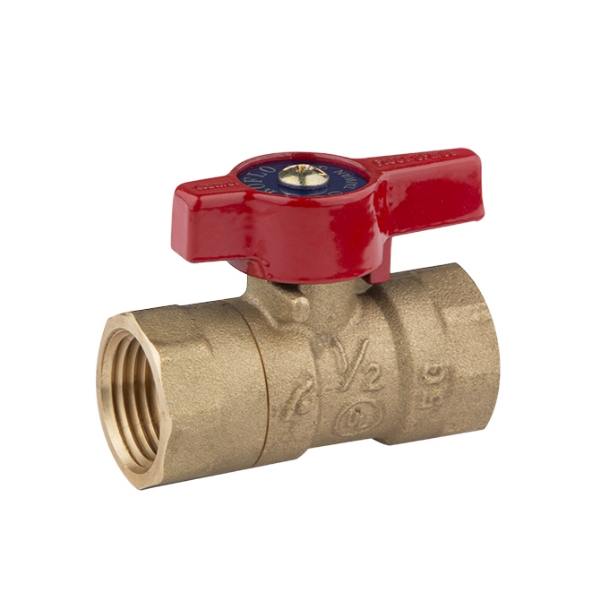
####**Types of Gas Valves in Heating Applications**
<p>**1) Manual Gas Valves**
<p>Manual gas valves are the simplest type of valve. As the name suggests, they are operated by hand, allowing the user to open or close the gas
supply manually. These valves are typically used in residential heating
systems and as shut-off valves for maintenance purposes. While they don’t offer automation or safety features, they are reliable for controlling the gas
flow when manual operation is appropriate.
<p>**Application:** Commonly used in residential furnaces, water heaters, and as shut-off valves for gas lines.
<p>**Top Manufacturers:** Honeywell, Maxitrol and Emerson
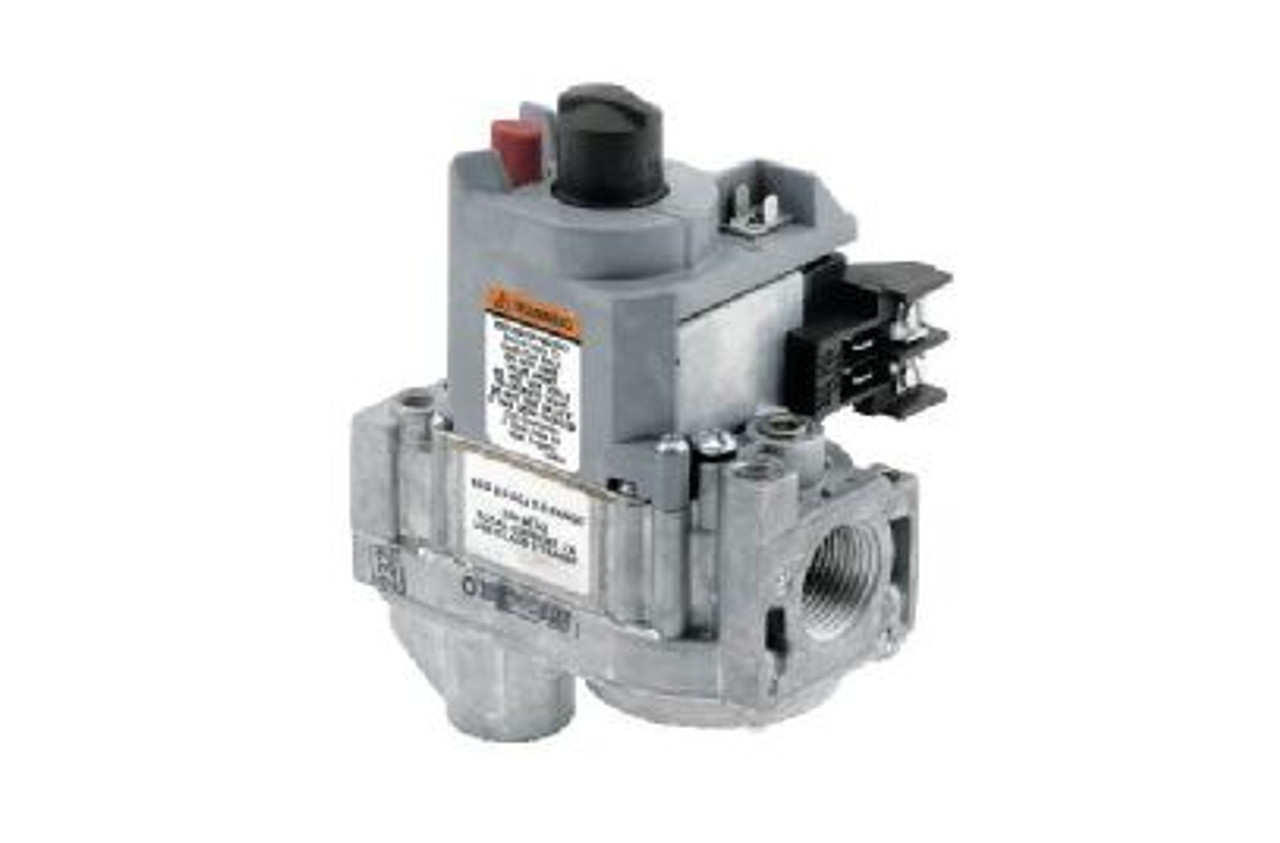
**2) Automatic Gas Valves**
<p>Automatic gas valves are more advanced than manual valves and are a standard feature in most modern heating systems. They automatically
regulate the gas flow based on the system’s requirements, using
signals from thermostats or control systems. These valves are often equipped with safety features, such as the ability to shut off gas flow in the event
of a malfunction.
<p>**Application:** Found in residential and commercial furnaces, boilers, and unit heaters. They are essential for systems that need precise gas flow
control and safety monitoring.
<p>**Top Manufacturers**: Resideo (Honeywell Home), White-Rodgers (Emerson) and Robertshaw
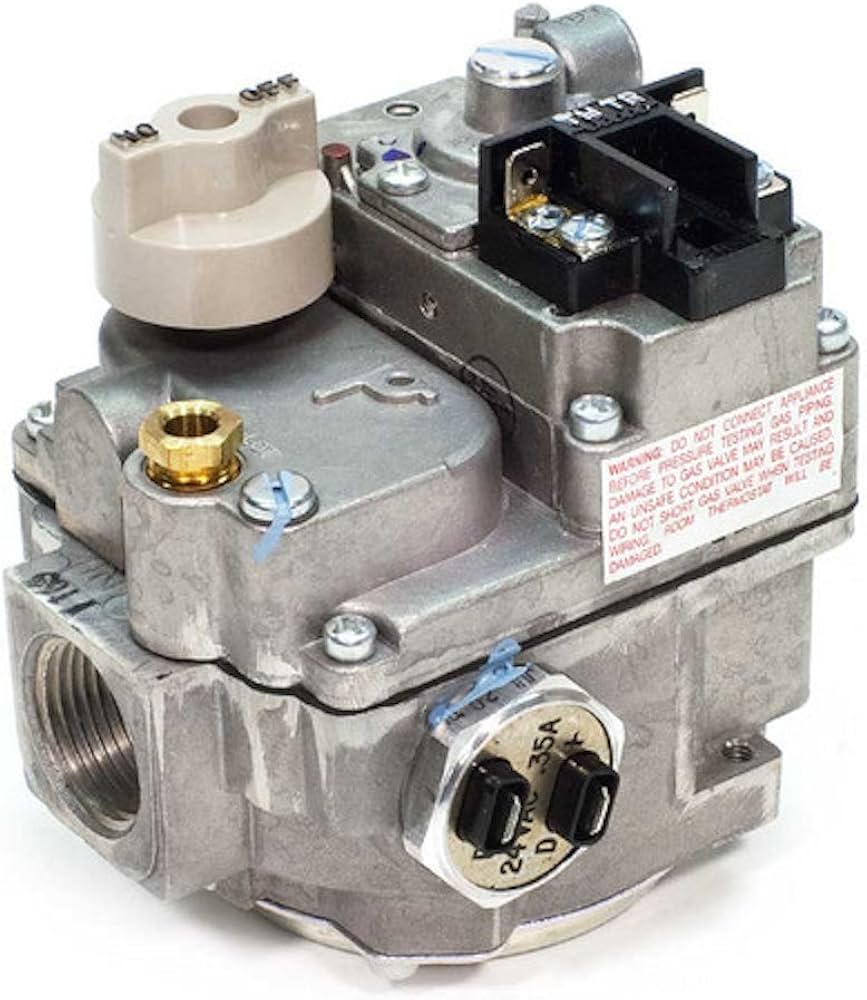
**3) Combination Gas Valves**
<p>Combination gas valves are multi-functional units that combine several components into one. They often integrate a manual shut-off, pressure
regulator, automatic gas valve, and pilot safety valve. The advantage
of combination valves is that they simplify installation and maintenance, offering control over multiple aspects of gas flow in a single unit.
<p>**Application:** Widely used in residential furnaces, water heaters, and boilers due to their compact size and versatility.
<p>**Top Manufacturers:** Resideo (Honeywell Home), White-Rodgers (Emerson) and Robertshaw
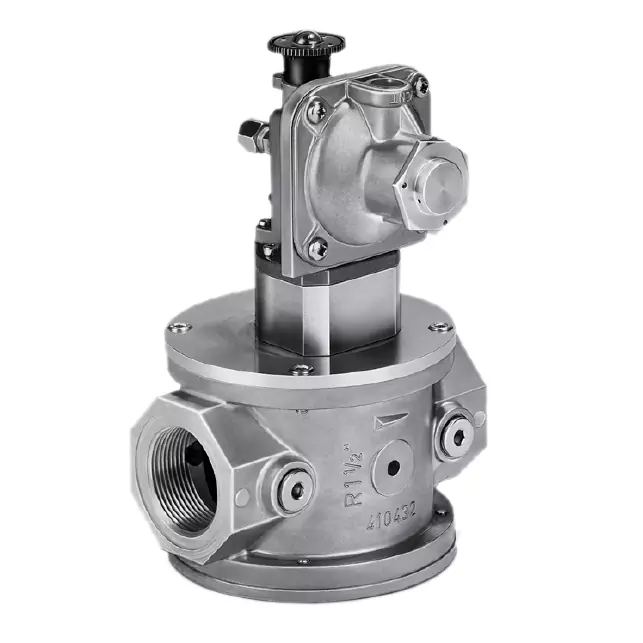
**4) Safety Shutoff Valves**
<p>Safety shutoff valves are specifically designed to shut off the gas supply if a hazardous condition is detected, such as the pilot light going out or a
flame failure. These valves are critical in preventing gas leaks and
ensuring the safe operation of the heating system.
<p>**Application:** Common in both residential and commercial heating systems, including furnaces and boilers, where safety is a top priority.
<p>**Top Manufacturers:** Maxitrol, Honeywell and Robertshaw
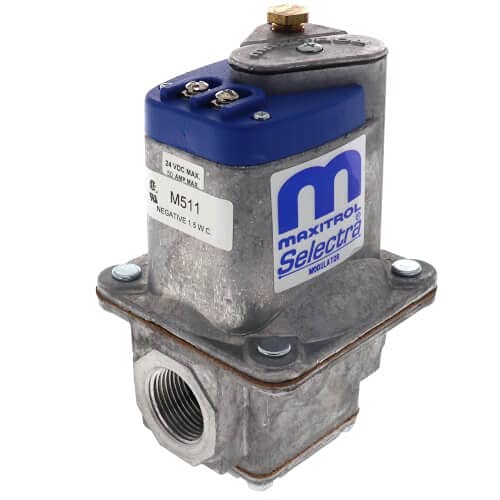
**5) Modulating Gas Valves**
<p>Modulating gas valves offer a higher level of control by adjusting the gas flow in real-time based on the heating load. Rather than operating as fully
open or fully closed, modulating valves can vary the gas flow to
match the system’s demand, resulting in more efficient fuel usage and smoother operation.
<p>**Application:** Typically used in larger, commercial heating applications like industrial boilers, where precise control over the heating process is
essential.
<p>**Top Manufacturers:** Danfoss, Siemens and Honeywell
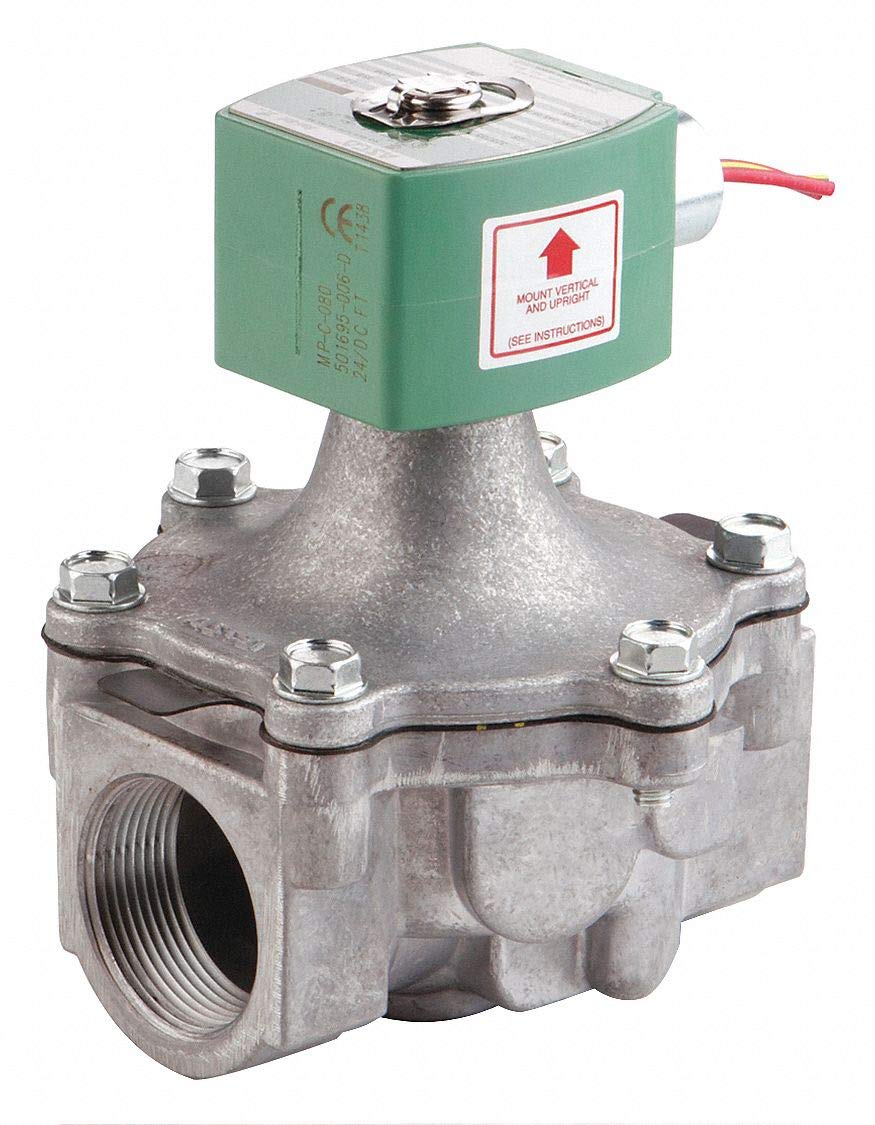
**6) Solenoid Gas Valves**
<p>Solenoid gas valves use an electromagnetic coil to open or close the valve. When an electrical current is applied, the coil is activated, and the valve
opens to allow gas flow. When the current is removed, the valve
closes. Solenoid valves are often used in conjunction with safety systems that detect issues such as overheating or flame failure.
<p>**Application:** Found in both residential and commercial systems, especially where quick and automatic gas shutoff is required.
<p>**Top Manufacturers:** ASCO (Emerson), Honeywell and Parker Hannifin
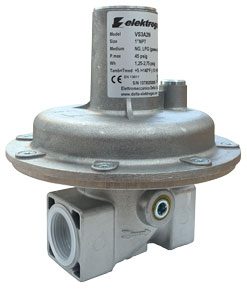
**7) Pressure Regulating Valves**
<p>Pressure regulating valves ensure that the gas entering the heating system is at the correct pressure level. This is important for maintaining
consistent combustion and preventing damage to the system from
excessive pressure. Many combination valves include a pressure regulator as part of their design.
<p>**Application:** Used in both residential and commercial heating systems where gas pressure regulation is critical, such as furnaces, boilers, and
water heaters.
<p>**Top Manufacturers:** Maxitrol, Honeywell and Danfoss
####**Common Heating Applications for Gas Valves**
<p>Gas valves are used in various heating applications, from small residential systems to large commercial and industrial setups. Some of the most common heating applications include:
+ **Residential Furnaces:** Gas valves control the flow of natural gas or propane to the furnace burners, enabling combustion to produce heat for homes.
+ **Boilers:** In hydronic heating systems, gas valves regulate the gas flow to the boiler’s burners, ensuring that the water is heated efficiently for use in radiators or underfloor heating systems.
+ **Water Heaters:** Gas valves are also found in water heaters, controlling the gas that heats the water, making them essential for both residential and commercial hot water systems.
+ **Commercial Heaters:** Larger systems like unit heaters, rooftop units, and commercial boilers also rely on gas valves for safe and efficient heating in schools, offices, factories, and warehouses.
+ **Fireplaces:** Gas fireplaces use automatic or manual gas valves to control the flame height and heat output.
Wholesale distributors can rely on **master distributors like Neuco** to source a wide variety of gas valves. Neuco stocks products from leading manufacturers and offers same-day shipping,
ensuring that HVAC contractors have quick access to the parts they need to keep heating systems operating safely and efficiently.
####**Conclusion**
<p>Gas valves play a vital role in controlling and regulating gas flow in heating systems, from residential furnaces to large industrial boilers. Understanding the different types of gas valves, their applications, and the
top manufacturers can help HVAC contractors select the right equipment for their projects and keep systems running smoothly. By partnering with a master distributor like Neuco, wholesale distributors can ensure
that they have the essential parts on hand to respond quickly to their customers’ needs, particularly during peak heating seasons when gas valve reliability is critical.
Copyright © 2007 - 2025 Neuco Inc. All Rights Reserved.



